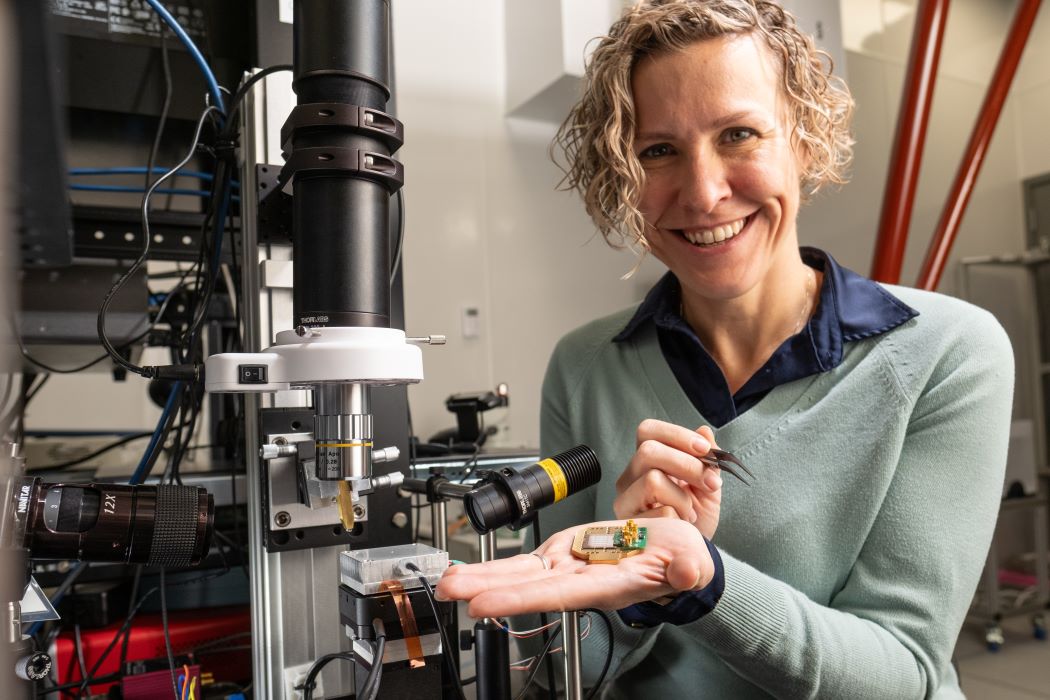Business
Canadian Firms Xanadu and Photonic Receive Federal Funding for Quantum Defence

Two Canadian quantum computing companies, Xanadu and Photonic, have been selected as semi-finalists in the Canadian government’s latest defence technology challenge. The challenge, part of the Innovation for Defence Excellence and Security (IDEaS) program, aims to foster the development of innovative technology solutions to enhance North America’s defence capabilities against aerospace and maritime threats.
Funding for Quantum Advancements
As part of this initiative, the Canadian Department of National Defence (DND) is awarding $1 million CAD each to Xanadu, Photonic, and 17 other semi-finalists to support their projects. This funding comes through the NORAD modernization contest, which seeks to encourage early-stage technological advancements in the defence sector.
Xanadu plans to utilize its grant to develop quantum computing algorithms aimed at creating next-generation batteries that can withstand extreme conditions. Meanwhile, Photonic is focused on enhancing its quantum repeater and networking technology, intending to overcome existing limitations in repeater design and contribute to the future of quantum sensing and communication systems.
Other notable recipients of this funding include the AI chip design firm Irreversible, the Canadian Space Mining Corporation, and ARA Robotics, as well as several academic institutions like the University of Toronto, the University of Waterloo, and the University of British Columbia. The involvement of these diverse organizations underscores the broad commitment to advancing Canada’s defence technology landscape.
Strategic Shift in Defence Spending
Launched in 2018, the IDEaS program represents a significant investment in Canada’s security, with plans to allocate $1.6 billion over 20 years to address contemporary defence challenges. The announcement of these grants coincides with a notable shift in the Canadian government’s defence spending strategy. Under the leadership of Prime Minister Mark Carney, Canada is on track to increase its defence budget to 5 percent of its gross domestic product (GDP) by 2035. This would mark the largest rise in defence funding since World War II, moving away from the current investment of less than 2 percent of GDP.
In light of these developments, Evan Solomon, Canada’s Minister of Artificial Intelligence and Digital Innovation, has indicated that new policies will be introduced to retain Canadian firms within the country. This response is partly driven by the United States Department of Defense’s Quantum Benchmarking Initiative, which both Xanadu and Photonic are currently involved with. Solomon emphasized the importance of bolstering Canadian capabilities in AI, quantum computing, sovereign computing, and cybersecurity, framing it as both an economic and national security necessity.
The increased funding for defence technology highlights the Canadian government’s commitment to ensuring that domestic companies are well-positioned to contribute to national security while fostering innovation in quantum technologies.
“Boosting AI, quantum, sovereign computing capacity, and cybersecurity is not just an economic imperative, but a national security imperative as well,” said Solomon.
As Canada steps up its defence initiatives, the success of firms like Xanadu and Photonic could play a pivotal role in shaping the future of quantum technology in the defence sector, ultimately contributing to a more secure North America.
-

 Politics4 weeks ago
Politics4 weeks agoSecwepemc First Nation Seeks Aboriginal Title Over Kamloops Area
-

 World5 months ago
World5 months agoScientists Unearth Ancient Antarctic Ice to Unlock Climate Secrets
-

 Entertainment5 months ago
Entertainment5 months agoTrump and McCormick to Announce $70 Billion Energy Investments
-

 Science5 months ago
Science5 months agoFour Astronauts Return to Earth After International Space Station Mission
-

 Lifestyle5 months ago
Lifestyle5 months agoTransLink Launches Food Truck Program to Boost Revenue in Vancouver
-

 Technology3 months ago
Technology3 months agoApple Notes Enhances Functionality with Markdown Support in macOS 26
-

 Lifestyle3 months ago
Lifestyle3 months agoManitoba’s Burger Champion Shines Again Amid Dining Innovations
-

 Top Stories2 months ago
Top Stories2 months agoUrgent Update: Fatal Crash on Highway 99 Claims Life of Pitt Meadows Man
-

 Politics4 months ago
Politics4 months agoUkrainian Tennis Star Elina Svitolina Faces Death Threats Online
-

 Sports5 months ago
Sports5 months agoSearch Underway for Missing Hunter Amid Hokkaido Bear Emergency
-

 Politics5 months ago
Politics5 months agoCarney Engages First Nations Leaders at Development Law Summit
-

 Technology5 months ago
Technology5 months agoFrosthaven Launches Early Access on July 31, 2025





















